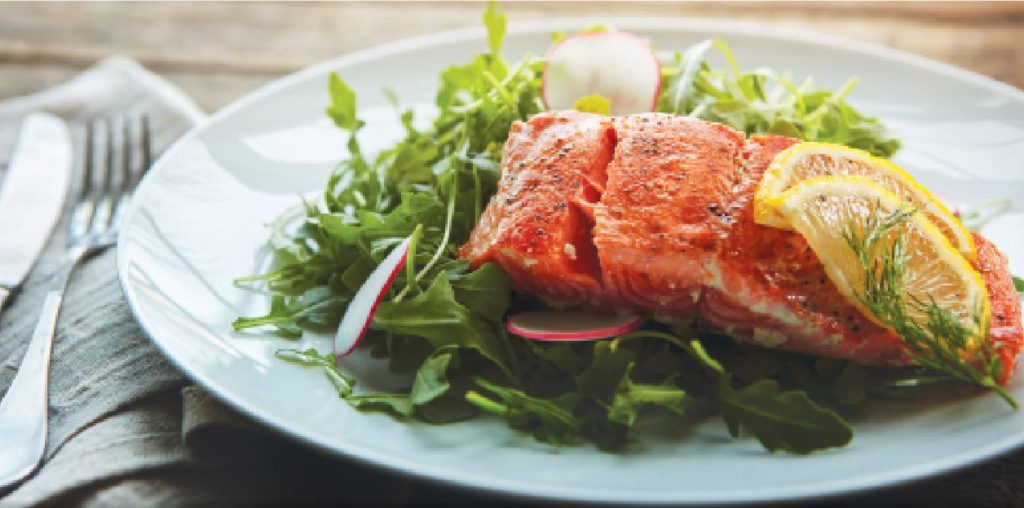 Carrots may be the best known food for eye health, but other foods may be even more important when it comes to keeping your eyesight in tip-top shape. May is Healthy Vision Month, a time to raise awareness about eye health and preventing vision loss. The most important thing you can do is get a regular eye exam with your eye doctor, but diet itself can play a role in keeping your eyes in good shape. Your eyes require special nutrients, vitamins, and antioxidants to keep them functioning properly.
Carrots may be the best known food for eye health, but other foods may be even more important when it comes to keeping your eyesight in tip-top shape. May is Healthy Vision Month, a time to raise awareness about eye health and preventing vision loss. The most important thing you can do is get a regular eye exam with your eye doctor, but diet itself can play a role in keeping your eyes in good shape. Your eyes require special nutrients, vitamins, and antioxidants to keep them functioning properly.
Here are a few important foods to help boost eye health:
Dark Green Leafy Vegetables
Spinach, kale, and collard greens are packed with lutein and zeaxanthin; these are antioxidants that can help prevent cataracts and macular degeneration. Other foods high in lutein and zeaxanthin include avocados, broccoli, and peas. Instead of iceberg lettuce or romaine, try spinach or mixed dark leafy greens for your salad at lunch. Incorporate broccoli as a side for dinner, and enjoy a portion-controlled side of guacamole during the week.
Sweet Potatoes
This vegetable is a good source of beta carotene, which the body converts to vitamin A. Other foods high in vitamin A include deep orange foods such as carrots and butternut squash. These foods can help prevent dry eyes and night blindness. Opt for a sweet potato with dinner, and add some shredded carrots to your lunch salad.
Salmon
Cold-water fishes such as salmon, mackerel, sardines, and tuna are rich in omega-3 fatty acids. This can help protect against cataracts, macular degeneration, and dry eyes. Try tuna salad for lunch, and salmon once or twice a week for dinner. Order fish when dining out for an omega-3 boost as well. If you don’t eat fish, other vegetarian foods that are high in omega-3s include blackcurrant seed oil, flaxseed oil, chia seeds, and walnuts.
Green Tea
This antioxidant-rich tea is full of anti-inflammatory substances called catcehins. The antioxidants in green tea can help lower risk of developing cataracts and macular degeneration. Add one cup of green tea with breakfast to start your day with an energy and antioxidant boost.
Whole Grains
These low-glycemic index grains can help reduce your risk of developing macular degeneration. Plus, whole grains contain Vitamin E, zinc, and niacin, which help to promote overall eye health. Try to swap out white rice for brown rice or quinoa at dinner. Incorporate steel cut oats in the morning for breakfast, and switch to whole wheat breads and wraps. When choosing a breakfast cereal, make sure that “whole grain” is the first ingredient listed.
Although nutrition can play a role, there are a few other things you can do to protect your eyes. Staring at your computer or phone screen for too long can put strain on your eyes. Try to rest your eyes every 20 minutes by looking away from the computer and taking a quick walk around the office. Additionally, too much UV exposure can increase your changes of cataracts and macular degeneration. Make sure to wear a good pair of sunglasses to help protect your eyes from the sun’s UV rays. Be sure to visit your eye doctor regularly to keep your eye health in check.
Stefani Pappas, MS, RDN, CDN, CPT, is a Clinical Dietitian Nutritionist at St. Francis Hospital. She also provides private and group nutrition counseling at her office in Great Neck, NY. Visit her website www.StefHealthTips.com for more information.


















